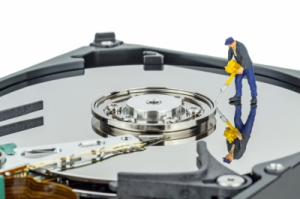Computer Forensics: The Role of Accountants in Fraud Investigations
 Cyber crime is on the rise, and it seems like no one is safe from the actions of unscrupulous individuals looking to make money at the expense of innocent people. Recent news reveals a cyber criminal in Manchester jailed for his role in an online phishing scam that took almost £2m from students – the criminal drained accounts by asking students to update their student loan details via a fake site.
Cyber crime is on the rise, and it seems like no one is safe from the actions of unscrupulous individuals looking to make money at the expense of innocent people. Recent news reveals a cyber criminal in Manchester jailed for his role in an online phishing scam that took almost £2m from students – the criminal drained accounts by asking students to update their student loan details via a fake site.
Combating Cyber Crime
In order to combat cyber crime and online fraud, law enforcement agencies are putting in place an increasing arsenal of preventative measures. For example, did you know that specialist accountants are increasingly used in fraud investigations to assist attorneys and other legal specialists? Here’s why forensic accountants are an integral part of a team investigating financial crime.
Following the Electronic Trail
A great number of fraud investigations have online and electronic implications. A crime could be committed involving online bank accounts, or the means of tracing certain assets or finances could take place through the analysis of an individual’s hard drive or online documents. Forensic accountants look at all the information stored within a PC or laptop – not just the documents, but the messages and the keystrokes logged, as well as the online chats and the hidden files. This is to determine the actions of individuals and to decipher who did what, and how. Criminals are often under the impression that they can hide their dealings through sophisticated IT practices, but forensic accountants are equally as skilled at discovering these items. Each action and item leaves a trail, no matter how well it is hidden, which can be followed by someone with the right skill set.
Of course, there are other reasons why a forensic accountant may be employed that don’t involve a criminal act. Divorce proceedings are one such case where one party may believe that assets are being hidden and not declared as part of the financial settlement of the divorce. Forensic accountants are also often employed to determine loss of income and future benefits in personal injury or medical negligence cases. For the business sector a forensic accountant could be invaluable. With their ability to track down interest rate swaps and mis-sold hedging products as well as conducting tax investigations, a forensic accountant could be worth their weight in gold.
Securing Convictions
Forensic accountants are increasingly offering computer forensics and online data analysis services to companies and individuals in order to combat online fraud. For example, forensic accountants in Manchester use hi-tech methods to find, analyse, and demonstrate how individuals commit fraud and online crimes. In the case of the Manchester phishing criminal, police, with the help of forensic accountants, recovered evidence through the chat logs of the people involved in the fraud, which demonstrated that the criminals were conspiring to hack computers in the UK in order to defraud. This evidence was used in court to bring about convictions.
As with any evidence and data used in court, the items that are retrieved from computers and the electronic trail that is discovered by investigators must be in a form which can be used in a legal case. The financial cost of cyber crime is high, and it pays to hire individuals who are skilled in discovering and analysing information for these purposes. The role of forensic accountants is increasingly developing even further, from assisting lawyers in investigations to an interdisciplinary role in complex fraud investigations involving online and electronic crime.
Image attributed to FreeDigitalPhotos.net Grant Cochrane

Category: Business





